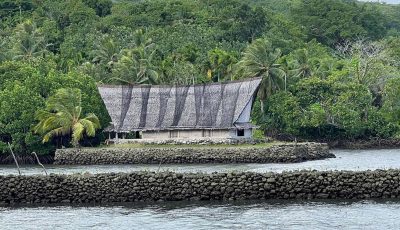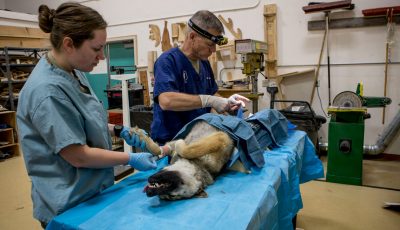10-year accord targets sustainable, inclusive growth for Pacific Islands
AUCKLAND, New Zealand—With poverty and inequality, slow economic growth, food security and youth unemployment remaining major challenges for the Pacific Islands, the New Zealand government and the Secretariat of the Pacific Community have signed a 10-year pact to boost development outcomes in the region.
Under their strategic Partnership Arrangement 2014-2024, the Ministry of Foreign Affairs and Trade and SPC will work closer than ever before in their 67-year history to drive on-ground initiatives and share expertise and resources to support a sustainable future for Pacific Islands people.
The arrangement was formalized in Auckland yesterday by the MFAT Deputy Secretary for International Development, Craig Hawke, and SPC Director-General Dr. Colin Tukuitonga at a reception hosted by the Ambassador for Pacific Economic Development, Shane Jones.
Tukuitonga welcomed the strengthened partnership, saying it gives SPC more certainty to pursue ambitious, lasting programs aimed at addressing serious development issues in the Pacific.
“This arrangement marks a new era of more strategic collaboration between SPC and New Zealand’s Ministry of Foreign Affairs and Trade which will extend to leveraging New Zealand’s whole-of-government expertise, including scientific agencies,” Tukuitonga said.
“As the International Year of Small Island Developing States draws to a close, we can reflect on the mixed progress on measures of human and social development among Pacific Island countries and territories and be reminded that supporting sustainable growth in the Pacific is a marathon, not a sprint.
“We’re deeply grateful for the support SPC receives through the New Zealand Aid Programme and for the ability this new arrangement gives us to collaborate with New Zealand on a multisectoral approach and with more predictable funding, rather than working project-by-project,” he said.
New Zealand currently funds services to Pacific Island countries and territories in areas including fisheries, agriculture, statistics, geoscience and public health as well as study exchanges within the Pacific.
For example, this support for SPC has resulted in better preparedness among Pacific Island governments and health professionals to cope with epidemics and emerging diseases like chikungunya, dengue and Zika with the introduction of online disease alerts on an interactive map: www.spc.int/phd/epidemics.
Over 100 people attended the reception, staged by Ambassador Jones to mark the partnership between New Zealand and the Pacific community and underline the vital nature of its support for Pacific people.
High-level consultations between MFAT and SPC will occur annually, with the first talks set for this week due to also include other ministries and research institutes. (SPC)



























